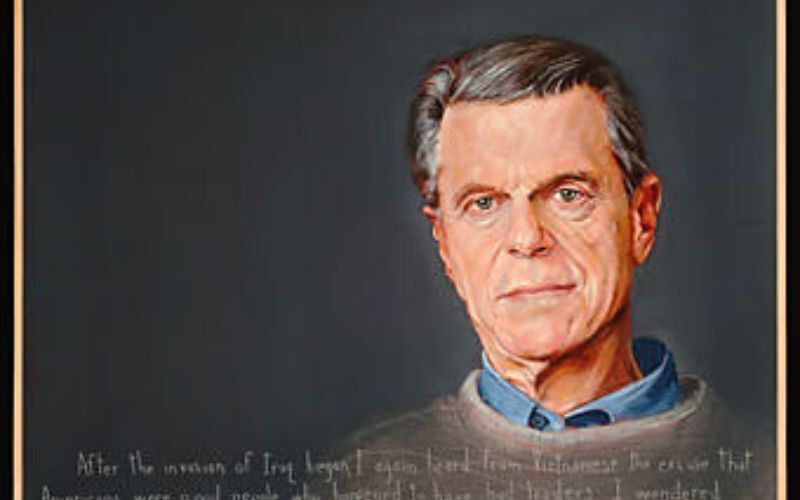Filmmaker, Journalist, Writer (1937- )
After the invasion of Iraq, I again heard from Vietnamese the excuse that Americans were good people who happened to have bad leaders. I wondered how long we can get away with that one. My fear is that we are no longer a nation at war but have become a nation of war. My hope is that we will pull back from empire and once again embrace our republic.
Additional Quotes by Peter Davis
If the first casualty of war is truth, the last is memory.
I looked at all kinds of films, and I did every kind of research you can imagine, talking, reading books, watching other films and then most of all thinking. I was able really to think about what I felt, how to express it and I did a lot of worrying. On all the films I've made I have never celebrated after a day of shooting. I start worrying and after shooting, no matter how good it is, I always think 'well jeez, sorry we did that' but what didn't we get, what do we still have to get while we're here or in this situation or at this school or in this firehouse, wherever I happen to be filming.
Always worry, that's just advice to a filmmaker. I never feel reassured until the film is over, mixed and released. Reassurance is not something that I as a filmmaker have felt or as a writer, until the whole thing is over.
Biography
Peter Davis was born in Santa Monica, California, where his parents were screenwriters. Best known for Hearts and Minds (1974), his landmark documentary film on the Vietnam War, Davis examines American life from the standpoint of a participant/observer having a lover’s quarrel with what he’s witnessing. He believes in an adversarial relationship between the press and authority and wants to hold power up to scrutiny as a way of preventing tyranny.
After graduating from Harvard, Davis went to India and became acquainted with both its incomparable beauty and extreme poverty. When he returned to the United States, he began examining his own country as a journalist. Davis realized that while dire poverty in India was a human tragedy, in the richest nation in the world it is a moral and political scandal.
Davis worked briefly at The New York Times and then was chosen to research and interview Franklin D. Roosevelt’s enemies, political associates, and family for a television series on FDR. This post-graduate education in contemporary American history brought him into the documentary film world as well as into contact with the injustices and unfulfilled promises in American society. At CBS News in the late 1960s and ’70s, Davis made films on student rebellion, poverty, racism, mental illness, and war. His investigation into Defense Department propaganda began a conflict between the Nixon Administration and broadcast journalism that led to reforms in the Pentagon’s public relations apparatus.
Leaving CBS News in 1972, Davis made Hearts and Minds, which unflinchingly examines American involvement in Vietnam. The film won the 1975 Academy Award for feature documentary and was re-released as a classic film on its 30th anniversary in 2004.
Davis began writing nonfiction articles and books in the late 1970s. He is the author of Hometown (1982), a study of life in a Midwestern community;Where is Nicaragua? (1987), which examines the impact of American policy in Central America during the Reagan Administration; and the Pulitzer Prize-nominated If You Came This Way (1995), a chronicle of the American underclass. With his son Nick Davis, he made JACK, a film biography of President Kennedy, in 1993. Davis’s many awards include an Emmy, a Peabody, a George Polk, and the Prix Sadoul in France. He is an Associate Fellow of Calhoun College at Yale.


